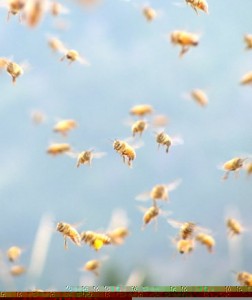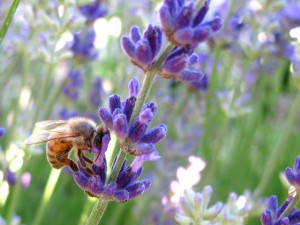A Love Story – Pollination
Sunday, September 5th, 2021It’s the most important relationship on Earth – everything in Nature depends on pollinators and flowers getting together.
Pollination is ‘a love story that feeds the Earth.’ – Louie Schwartzberg.
For a flower to make seeds and fruit, its pollen (male) must move to an egg (female), usually in another flower – and bees do most of the pollen-moving. The result is a cornucopia of foods from cherries to cashews to coffee. Humans’ relationship with pollinators is also crucial, so let’s provide bees with a variety of flowers, clean water, and poison-free gardens.
Louie Schwatzberg’s Wings Of Life:


